Gadgets that help beat alcoholism, drug addiction and smoking
Wearable technologies in various ways could succeed in fighting bad habits, even simply motivating them to lead a healthier and more active lifestyle, reducing the amount of time we could spend on “smoke breaks”.
Nevertheless, some devices promise direct assistance, or deliverance, from the harmful effects of alcohol, tobacco or drugs. Some of them are in the selection.
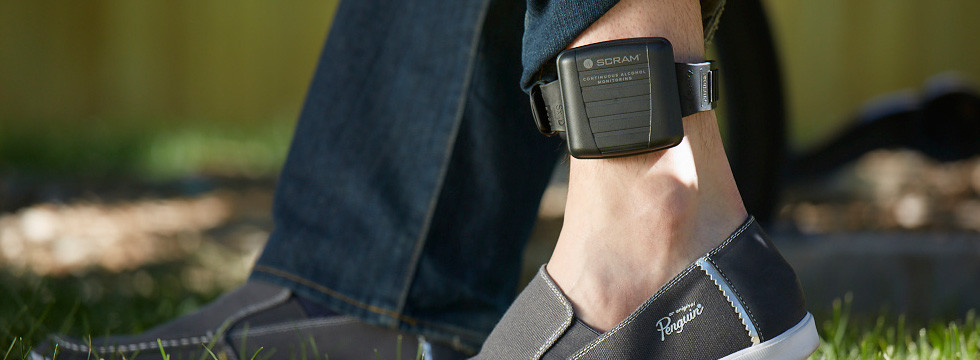
Alcohol
')
Scram systems are quite well-known as a means of controlling something, and are mainly used in professional fields, for example, in police work.
One of the Scram Cam sensors provides remote monitoring of alcohol use, helping, including clinical anti-addiction.

The device can be mounted on the user's hand or foot in order to analyze the discharge from the body, visible and invisible to the human eye.
Opto-Care bracelet allows you to extract a whole range of data, including pulse, pressure, blood glucose level ... As well as the presence of alcohol in the blood.

The level of alcohol, as well as other parameters, is displayed in the application, where the dynamics and frequency of use are visible. Fixing such data should help a person defeat the addiction alone or with the help of a doctor.
Systematization and subsequent work on reduced use can help project Wise - this is an application for Android and IOS , where manually added data in real time.
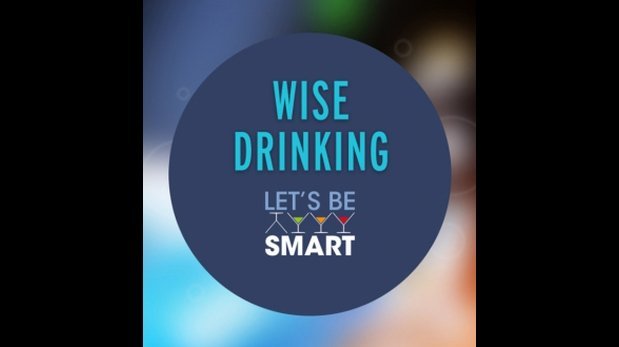
Also, pocket household breathalyzers help to instantly assess the degree of intoxication: one of them - DrinkMate - works without a battery, paired with a phone, transmitting and storing information in the usual measurement systems - BAC or ppm.
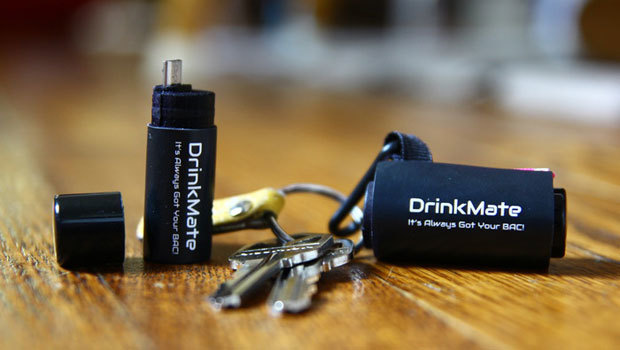
WHO’s interest in this problem is currently very acute. According to confirmed data in the world at the moment 140 million addicts who need help.
Addiction
According to statistics, 45 out of 70% of patients who completed the rehabilitation course to the end do not return to drug use for a long time. Most often, difficulties arise with serious substances: cocaine, heroin, etc.
Some doctors are ready to seek help from gadgets that are not directly intended to diagnose drug addiction. Known, for example, the experience conducted in the Houston Medical College.
A group of volunteers recorded changes in breathing and heartbeat after taking cocaine with the help of the Zephyr tracker , known in the market for health monitoring in emergency situations. Widely used among firefighters, military and other emergency professions.
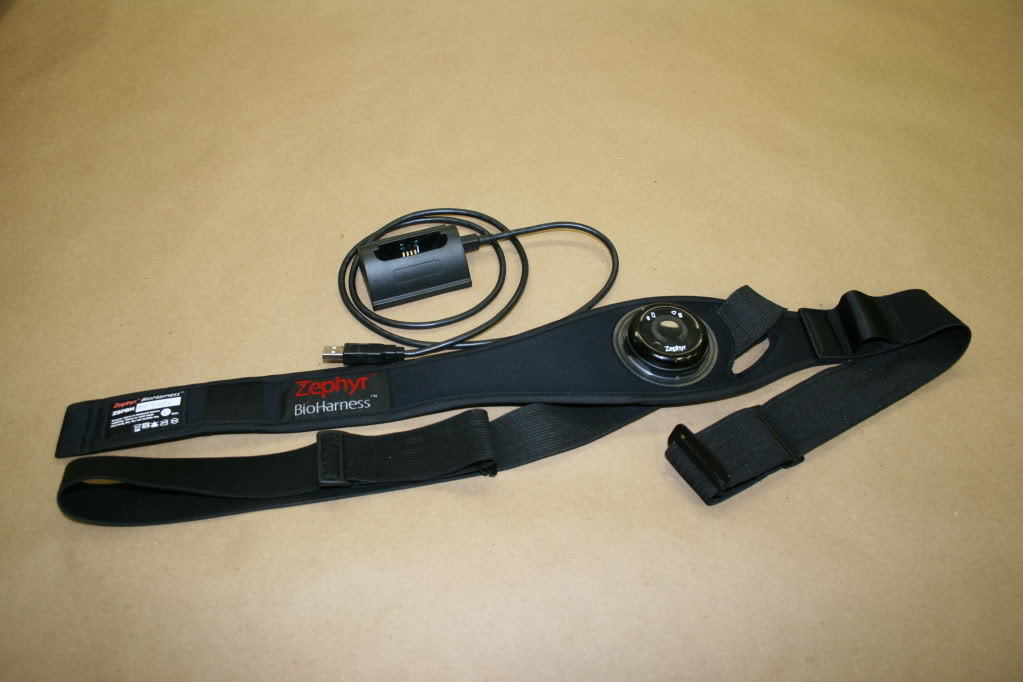
Also, psychologists say that drug use is associated with the desire to "be in a different reality." Thus, for the prevention of "otherworldly" states, virtual reality headsets can be attracted, imitating immersions in other worlds and spaces, compensating for the use of narcotic substances.
Smoking
The problem that hundreds and thousands of people around the world are trying to solve.
The process of quitting smoking was suggested to be solved with the help of the SmokIO smart electronic cigarette (now Vapio), which counted the money saved, recalculated electronic puffs into real ones and suggested a conventional recovery scale.
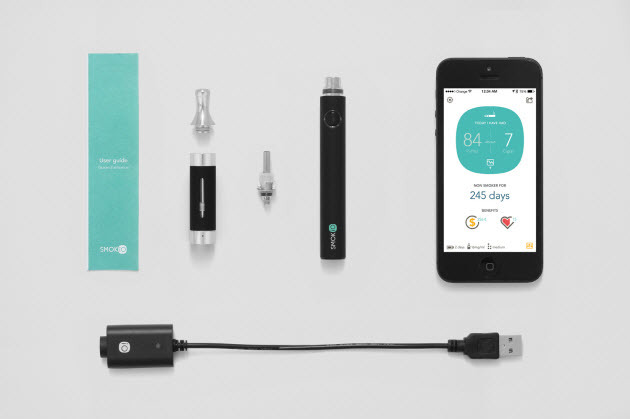
There was also a clever electronic lighter that allowed to light strictly at certain intervals.

One of the most famous medical projects was the SmartStop plaster bracelet from Chronos Therapeutics . The gadget was developed over 10 years, and in 2014, Rock Health joined the financing of the product.
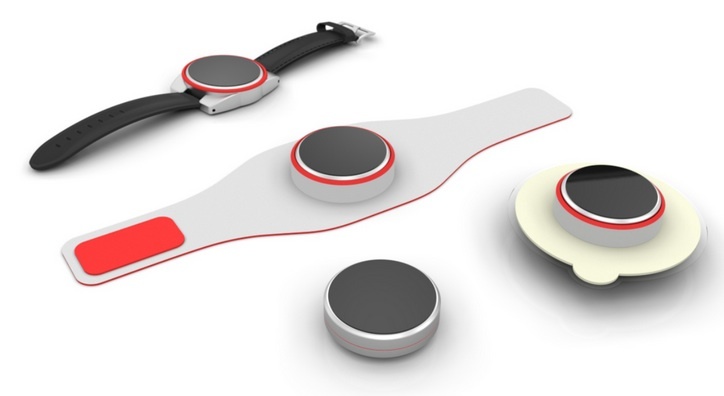
For up to 10 weeks, the gadget systematically delivers nicotine doses through the skin, reducing them during the course. The stages of the course are optimized through a special application where wearing statistics are visible. In case there was a waiver failure, the system may suggest changing the treatment model. By 2017, the company plans to receive FDA approval.
Fix the number of "approaches" to the cigarette offer using a special software. For example, we can mention Kiwi , a system that works in conjunction with almost any smart device. You can customize individual tracking of specific movements - and each bending of the elbow, followed by the presentation of the brush to the head, will be evaluated as a drag.
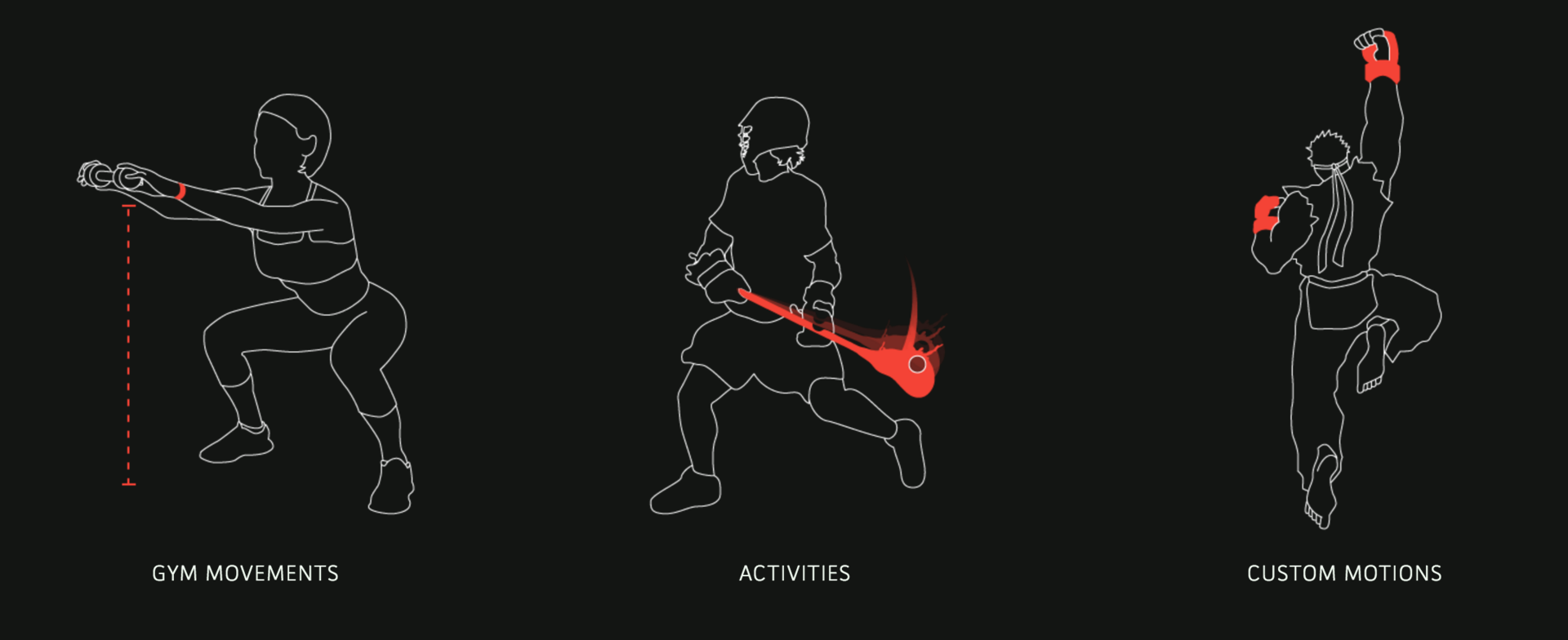
There were also developments from Taiwan, where they offered a special dental implant for smokers, which would “track” the frequency and number of cigarettes smoked at a time. However, no serious details about the development of this project does not come.
Nevertheless, some devices promise direct assistance, or deliverance, from the harmful effects of alcohol, tobacco or drugs. Some of them are in the selection.

Alcohol
')
Scram systems are quite well-known as a means of controlling something, and are mainly used in professional fields, for example, in police work.
One of the Scram Cam sensors provides remote monitoring of alcohol use, helping, including clinical anti-addiction.

The device can be mounted on the user's hand or foot in order to analyze the discharge from the body, visible and invisible to the human eye.
Opto-Care bracelet allows you to extract a whole range of data, including pulse, pressure, blood glucose level ... As well as the presence of alcohol in the blood.

The level of alcohol, as well as other parameters, is displayed in the application, where the dynamics and frequency of use are visible. Fixing such data should help a person defeat the addiction alone or with the help of a doctor.
Systematization and subsequent work on reduced use can help project Wise - this is an application for Android and IOS , where manually added data in real time.

Also, pocket household breathalyzers help to instantly assess the degree of intoxication: one of them - DrinkMate - works without a battery, paired with a phone, transmitting and storing information in the usual measurement systems - BAC or ppm.

WHO’s interest in this problem is currently very acute. According to confirmed data in the world at the moment 140 million addicts who need help.
Addiction
According to statistics, 45 out of 70% of patients who completed the rehabilitation course to the end do not return to drug use for a long time. Most often, difficulties arise with serious substances: cocaine, heroin, etc.
Some doctors are ready to seek help from gadgets that are not directly intended to diagnose drug addiction. Known, for example, the experience conducted in the Houston Medical College.
A group of volunteers recorded changes in breathing and heartbeat after taking cocaine with the help of the Zephyr tracker , known in the market for health monitoring in emergency situations. Widely used among firefighters, military and other emergency professions.

Also, psychologists say that drug use is associated with the desire to "be in a different reality." Thus, for the prevention of "otherworldly" states, virtual reality headsets can be attracted, imitating immersions in other worlds and spaces, compensating for the use of narcotic substances.
Smoking
The problem that hundreds and thousands of people around the world are trying to solve.
The process of quitting smoking was suggested to be solved with the help of the SmokIO smart electronic cigarette (now Vapio), which counted the money saved, recalculated electronic puffs into real ones and suggested a conventional recovery scale.

There was also a clever electronic lighter that allowed to light strictly at certain intervals.

One of the most famous medical projects was the SmartStop plaster bracelet from Chronos Therapeutics . The gadget was developed over 10 years, and in 2014, Rock Health joined the financing of the product.

For up to 10 weeks, the gadget systematically delivers nicotine doses through the skin, reducing them during the course. The stages of the course are optimized through a special application where wearing statistics are visible. In case there was a waiver failure, the system may suggest changing the treatment model. By 2017, the company plans to receive FDA approval.
Fix the number of "approaches" to the cigarette offer using a special software. For example, we can mention Kiwi , a system that works in conjunction with almost any smart device. You can customize individual tracking of specific movements - and each bending of the elbow, followed by the presentation of the brush to the head, will be evaluated as a drag.

There were also developments from Taiwan, where they offered a special dental implant for smokers, which would “track” the frequency and number of cigarettes smoked at a time. However, no serious details about the development of this project does not come.
Source: https://habr.com/ru/post/393157/
All Articles